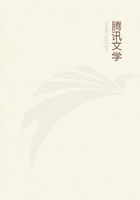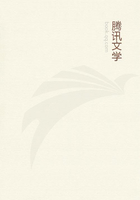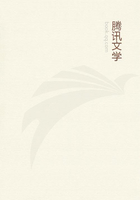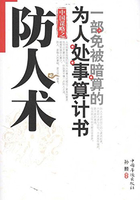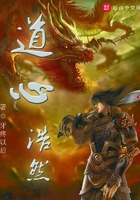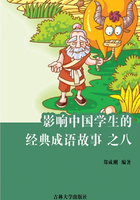"Secondly, it (capital) may be employed in the improvement of land, in the purchase of useful machines and instruments of trade, or in suchlike things as yield a revenue or profit without changing masters, or circulating any further. Such capitals therefore may very properly be called fixed capitals. Different occupations require very different proportions between the fixed and circulat-ing capitals employed in them. . . . Some part of the capital of every master artificer or manufacturer be fixed in the instruments of his trade. This part, however, is very small in some, and very great in others. . . . The far greater part of the capital of all such master artificers (such as tailors, shoemakers, weavers) however is circulated, either in the wages of their workmen, or in the price of their materials, and to be repaid with a profit by the price of work."Apart from the naïve determination of the source of profit weakness and confusion become at once apparent from the following: To a machine manufacturer for example the machine is his product, which circulates as commodity-capital, or in Adam Smith's words, "is parted with, changes masters, circulates further." According to his own definition therefore this machine would not be fixed but circulating capital. This confusion is again due to the fact that Smith mixes up the distinction between fixed and circulating capital evolved out of the manifold circulation of the various elements of productive capital, with differences in the form assumed by the same capital which functions as productive capital within the process of production and as circulation capital, that is to say, as commodity-capital or as money-capital, within the sphere of circulation. Consequently with Adam Smith things can function as fixed capital (as instruments of labour, elements of productive capital), or as "circulating" capital, commodity-capital (as products thrust out of the sphere of production into that of circulation), all depending on the position they occupy in the life-process of capital.
But Adam Smith suddenly changes the entire basis of his classification, and contradicts the text with which he had opened the entire investigation a few lines previously. This refers particularly to the statement: "There are two different ways in which a capital may be employed so as to yield a revenue or a profit to its employer," [Vol. II, p. 254] namely, as circulating or as fixed capital. According to that these are therefore different methods of employing different capitals independent of one another, such as capitals that can be employed either in industry or in agriculture. And then we read [Vol. II, p. 255]: "Different occupations require very different proportions between the fixed and circulating capitals employed in them." Fixed and circulating capital are now no longer different, independent investments of capital, but different portions of the same productive capital, which form different parts of the total value of this capital in different spheres of investment. Hence we have here differences arising from an appropriate division of the productive capital itself and therefore valid only with respect to it. But this runs counter to the circumstance that merchants'
capital, being merely circulating capital, is opposed to fixed capital, for Adam Smith says himself: "The capital of a merchant for example is altogether a circulating capital." [Vol. II, p. 255.] It is indeed a capital performing its functions solely within the sphere of circulation and as such stands opposed in general to productive capital, the capital embodied in the process of production. But for this very reason it cannot be contrasted, as the circulating component part of productive capital, to its fixed component part.
In the illustrations Smith gives he designates the "instruments of trade" as fixed capital, and the portion of capital laid out in wages and raw materials, including auxiliary materials, as circulating capital ("repaid with a profit by the price of the work").
And so he starts out, in the first place, from the various constituents of the labour-process, from labour-power (labour) and raw materials on the one hand, and instruments of labour on the other. But these are constituents of capital, because a sum of value which is to function as capital is invested in them. To this extent they are material elements, modes of existence of productive capital, that is to say, of capital functioning in the process of production. But why is one of these parts called fixed?
Because "some parts of the capital must be fixed in the instruments of trade." [Vol. II, p. 254.] But the other part is also fixed -- in wages and raw materials. Machines however and "instruments of trade . . . or suchlike things . . . yield a revenue or profit without changing masters, or circulating any further. Such capitals, therefore, may very properly be called fixed capitals." [Vol. II, p. 254.]
Take for instance the mining industry. No raw material at all is used there, because the subject of labour, such as copper, is a product of nature, which must first be appropriated by labour. The copper to be first appropriated, the product of the process, which circulates later as a commodity, or commodity-capital, does not form an element of productive capital. No part of its value is invested in it. On the other hand the other elements of the productive process, labour-power and auxiliary materials such as coal, water, etc., do not enter materially into the product, either.


